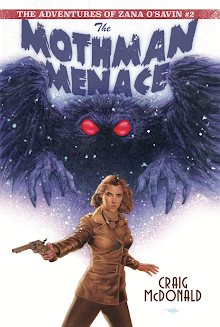In 1966, A.E. Hotchner published “Papa Hemingway,” a memoir
that widow Mary Hemingway unsuccessfully sought to suppress.
Hotchner, now 95, recently published “Hemingway in Love:
His Own Story,” (St. Martin’s Press) a kind of slim sequel purportedly comprised
of outtakes from the 1966 release, miniature tape recordings long since deteriorated
and remembered conversations.
This installment focuses primarily on Hemingway’s
abandonment of first wife Hadley and son John “Bumby” Hemingway in favor of
second wife Pauline Pfeiffer. It’s the tale of a regretted love triangle as purportedly
told to Hotchner directly by Hemingway over several encounters and across
uncounted miles.
For those who read and valued “Papa Hemingway,” this slim
follow up is a probably necessary if frequently redundant read. Anyone who has also
read Hemingway’s Paris memoir “A Moveable Feast,” or even a single Hemingway
biography will not find much of real revelation in “Hemingway In Love.”
Hotchner is never less than readable, but for me, this book
suffers from the same reservations I experienced when reading his 1966 memoir
for the first time many years back.
Mr. Hotchner doesn’t footnote or source his materials. What
appear to be Hemingway tall tales (I’m this time questioning the reality of a supposed
encounter with Josephine Baker) are once again presented with
equal weight and gravity as Hemingway memories and events supported by the
historical record.
 |
| Hotchner's signature from my autographed copy of PAPA HEMINGWAY |
When “Papa Hemingway” was still a fairly young release, some
ventured the opinion—one I happened to share—Hotchner was working from
Hemingway letters recast in the form of conversations or real-time
dialogues between the two men.
In this newest book, the long running monologues attributed
to Hemingway (a couple even jarringly changing tense at points) are often consistent with the Hemingway voice that comes through in the novelist’s
voluminous correspondence.
Reading this newest Hotchner release, I was once again nagged
by the notion at least some of this material is again drawing from the
Hemingway and Hotchner letter exchanges—a written dialogue profound enough to have
resulted in a nearly 400 page collection of their writings back and forth
published in 2005. (These can be found in “Dear Papa, Dear Hotch,” University
of Missouri Press.)
In the end, not much new ground is broken in this latest
Hotchner release regarding Hemingway, but the flashes of authentic Hemingway
voice—and Hotchner’s easy to digest narration—make this a diverting way to
pass a couple of hours in revisiting a bittersweet and pivotal moment of Ernest’s
life.









































No comments:
Post a Comment